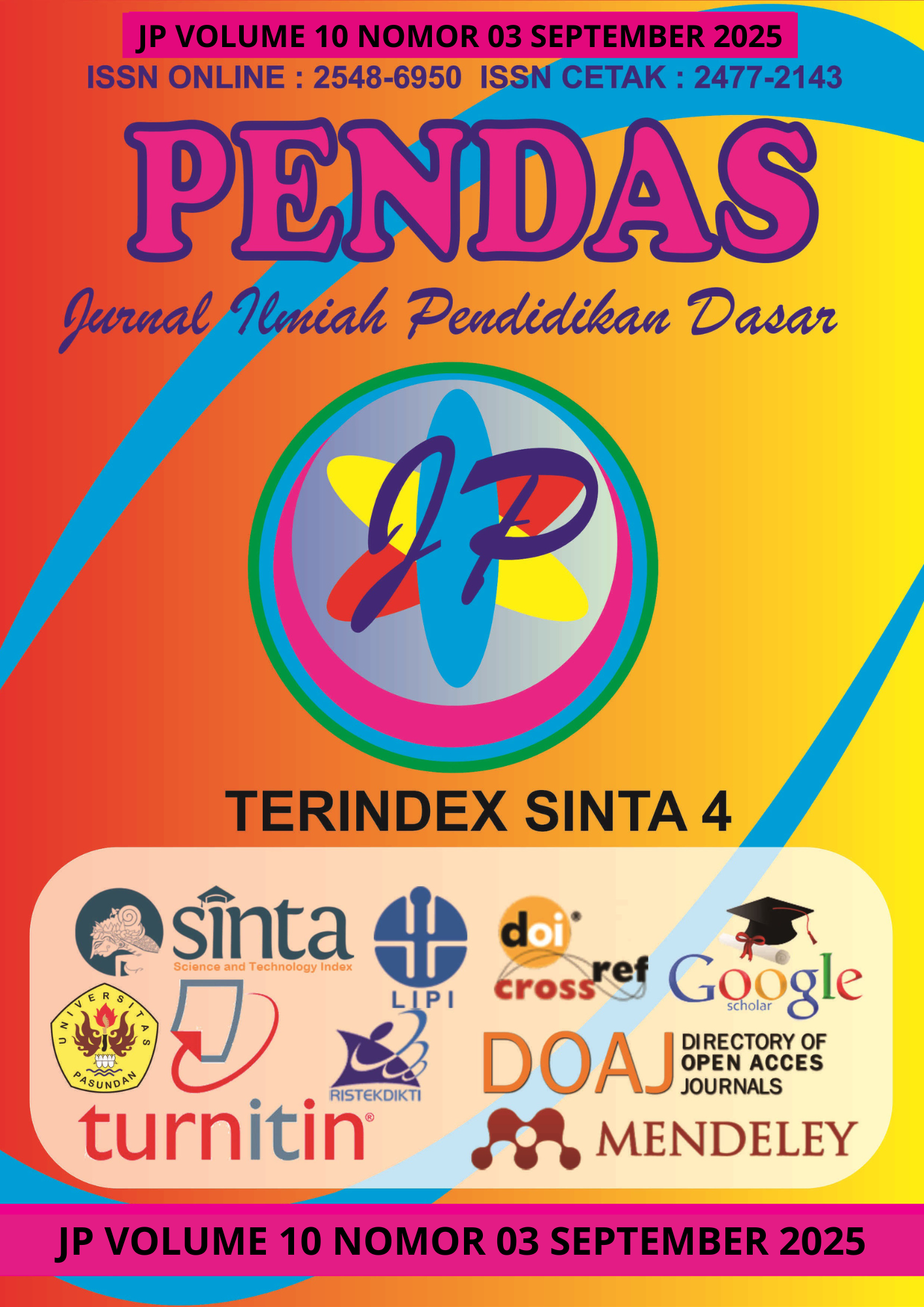EFEKTIVITAS BIMBINGAN KELOMPOK UNTUK MENINGKATKAN EFIKASI DIRI SISWA DI SANGGAR BIMBINGAN KEPONG
DOI:
https://doi.org/10.23969/jp.v10i03.32081Keywords:
Group counseling, Self-efficacy, Elementary school students, Guidance and counseling servicesAbstract
The aim of this study is to determine whether the Kepong Guidance Center's group counseling sessions were successful in improving the self-efficacy of third-grade elementary school children. A person's self-efficacy can be defined as their confidence in their own ability to complete tasks or face challenging situations. Using a one-group pretest-posttest quasi-experimental design, this study employed quantitative methods. The research population consisted of ten third-grade students, aged between eight and nine years old, who participated in the Kepong Guidance Center’s counseling group during the 2024–2025 academic year. A saturated sampling method, or total population sampling, was used in the sampling process. The research instrument was adapted to suit the specific characteristics of elementary school students and utilized a validated self-efficacy scale. For this study, a paired sample t-test was used to compare the participants' levels of self-efficacy before and after participating in the support group. According to the data, students’ self-efficacy significantly increased after attending the counseling group (t-value = 8.456; p < 0.05). The average self-efficacy score increased substantially, from a low of 45.2 to a high of 68.8. These results suggest that elementary school students can benefit from group counseling as an alternative intervention to traditional counseling and guidance programs, as group counseling has proven effective in enhancing students' self-efficacy.
Downloads
References
Bandura, A. (2019). Self-efficacy: The exercise of control (2nd ed.). W. H. Freeman and Company.
Berk, L. E. (2020). Development through the lifespan (7th ed.). Pearson Education.
Chen, M. H., Wang, L. C., & Lin, S. Y. (2020). The effectiveness of group counseling on academic self-efficacy among elementary school students: A randomized controlled trial. Journal of School Psychology, 82(3), 45-62. https://doi.org/10.1016/j.jsp.2020.04.001
Corey, G. (2020). Theory and practice of group counseling (10th ed.). Cengage Learning.
Johnson, K. M., Davis, R. A., & Thompson, S. J. (2022). Group interventions for enhancing self-efficacy in school-age children: A meta-analytic review. Child Development Perspectives, 16(2), 89-105. https://doi.org/10.1111/cdep.12456
Rodriguez, M. A., & Martinez, C. L. (2021). Group counseling program to enhance self-efficacy in Spanish elementary students. International Journal of School & Educational Psychology, 9(4), 312-328. https://doi.org/10.1080/21683603.2021.1925789
Santrock, J. W. (2019). Child development (14th ed.). McGraw-Hill Education.
Sari, D. P., & Wibowo, M. E. (2020). Efektivitas bimbingan kelompok dengan teknik modeling untuk meningkatkan efikasi diri akademik siswa sekolah dasar. Jurnal Bimbingan Konseling, 9(2), 156-163. https://doi.org/10.15294/jubk.v9i2.35421
Schunk, D. H., & DiBenedetto, M. K. (2020). Motivation and social cognitive theory. Contemporary Educational Psychology, 60, 101832. https://doi.org/10.1016/j.cedpsych.2019.101832
Usher, E. L., & Schunk, D. H. (2019). Social cognitive theoretical perspective of self-regulation. In D. H. Schunk & J. A. Greene (Eds.), Handbook of self-regulation of learning and performance (2nd ed., pp. 19-35). Routledge.
Wang, J., & Liu, X. (2019). Self-efficacy development in elementary school children: The role of social feedback and peer comparison. Developmental Psychology, 55(8), 1625-1638. https://doi.org/10.1037/dev0000745
Yalom, I. D., & Leszcz, M. (2021). The theory and practice of group psychotherapy (6th ed.). Basic Books.
Zee, M., & Koomen, H. M. Y. (2016). Teacher self-efficacy and its effects on classroom processes, student academic adjustment, and teacher well-being: A synthesis of 40 years of research. Review of Educational Research, 86(4), 981-1015. https://doi.org/10.3102/0034654315626801.
Downloads
Published
Issue
Section
License
Copyright (c) 2025 Pendas : Jurnal Ilmiah Pendidikan Dasar

This work is licensed under a Creative Commons Attribution 4.0 International License.














































